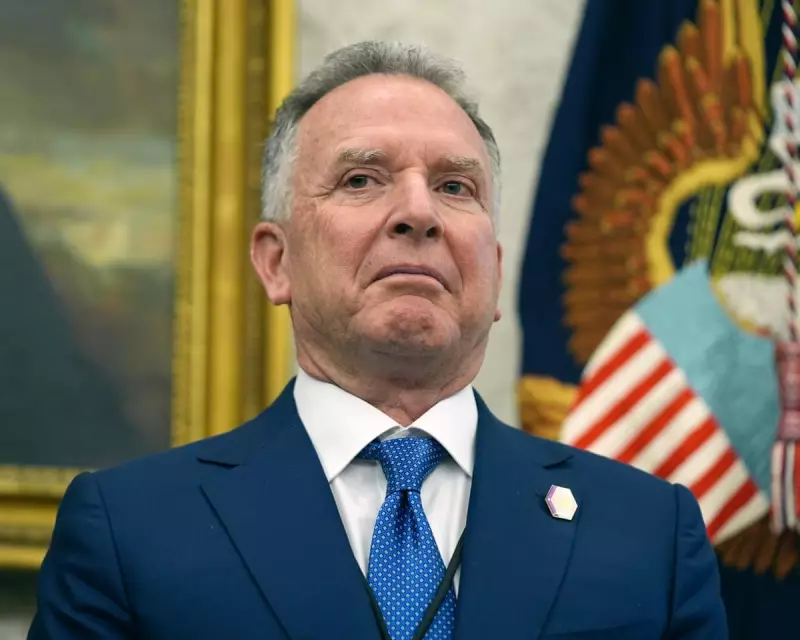
A leaked telephone conversation involving US envoy Steve Witkoff has ignited political firestorm in Washington, revealing he provided advice to Moscow officials on how to approach Donald Trump regarding Ukraine peace negotiations.
Republican Backlash and Calls for Dismissal
The revelation has triggered fierce condemnation from congressional Republicans, who argue the proposed peace arrangement disproportionately benefits Russia. Senator Roger Wicker, who chairs the Senate Armed Services Committee, expressed deep scepticism about the proposal. "This so-called 'peace plan' has real problems, and I am highly skeptical it will achieve peace," he stated.
The situation intensified when reports emerged that Witkoff had reportedly coached Moscow on managing its communications with Trump. Republican representative Don Bacon didn't mince words in his criticism, writing on social media platform X: "For those who oppose the Russian invasion and want to see Ukraine prevail as a sovereign & democratic country, it is clear that Witkoff fully favours the Russians. He cannot be trusted to lead these negotiations."
Bacon's comments went further, questioning whether "a Russian paid agent would do less than he? He should be fired."
Internal Republican Divisions Surface
The controversy has exposed fractures within Republican ranks. Pennsylvania Republican Brian Fitzpatrick described the leak as representing "one of the many reasons why these ridiculous side shows and secret meetings need to stop."
Senator Mitch McConnell suggested Trump might require new advisers in light of the revelations, prompting immediate pushback from Vice-president JD Vance, who characterised McConnell's comments as a "ridiculous attack." Donald Trump Jr. joined the fray on social media, accusing McConnell of being "just bitter and lashing out against my father."
Ukrainian War Effort Supporters Express Dismay
Americans involved in supporting Ukraine's military efforts have voiced profound disappointment with Trump's continuing pressures on Kyiv. Some view the US-led peace initiative as tantamount to betrayal.
One American special forces veteran who has trained and advised Ukrainian forces described the situation as "complete bullshit and a betrayal by Trump," adding rhetorically: "But are you even surprised?"
A Nato veteran currently training Ukrainian soldiers suggested financial motivations were driving US government actions, labelling the peace plan "pathetic."
International Reactions and Military Realities
Russia has acknowledged the ongoing discussions to conclude the conflict in Ukraine are "serious." Kremlin aide Yuri Ushakov told Russian state television that the draft proposal demanded "truly serious analysis," noting that "some aspects can be viewed positively, but many require special discussions among experts."
Meanwhile, European Commission President Ursula von der Leyen has cautioned against "the unilateral carving up of a sovereign European nation" as European leaders work to maintain influence over American attempts to end the hostilities.
Von der Leyen welcomed Trump's peace-seeking efforts but emphasised Europe harbours numerous concerns about specifics in the original 28-point blueprint. She stated Russia demonstrates "no signs of true willingness to end the conflict" and warned that "if today we legitimise and formalise the undermining of borders, we open the doors for more wars tomorrow."
On the battlefield, analysis from the American Institute for the Study of War shows Russian forces have captured an average of 467 square kilometres monthly in 2025—an increase from 2024's figures. Moscow's military is currently battling for four crucial settlements in Donetsk region: Lyman, Siversk, Kostiantynivka, and Pokrovsk. Losing these positions would compromise Kyiv's defensive structures and supply routes, endangering the final major Ukrainian-controlled settlements in the area, Sloviansk and Kramatorsk.
In economic developments, the International Monetary Fund announced on Wednesday it had reached a staff-level agreement on a new four-year, $8.2 billion programme for Ukraine as the nation confronts escalating wartime fiscal challenges. This arrangement replaces the existing $15.6 billion Extended Fund Facility approved in March 2023. The IMF noted that "Russia's war continues to take a heavy toll on Ukraine's people and its economy."





